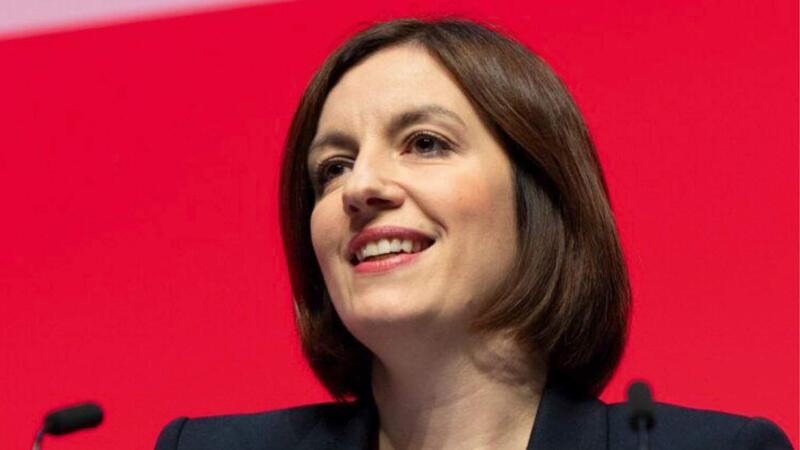You are viewing your 1 free article this month. Login to read more articles.
Pearson group revenue rises 10% as two million sign up for new app
Pearson has seen group underlying revenue rise 10% over the past nine months as the company continued to recover from the effects of Covid-19 and two million people signed up for its new app.
The performance for the period up to 30th September 2021 were revealed in a trading update on 15th October. They showed Virtual Learning revenue rising 14%, “reflecting strong enrolment growth in virtual schools in the 2020/21 school year and flat revenue in online programme management with underlying growth offset by discontinued programmes".
Higher Education revenue was down 7% as growth in international courseware for territories such as Canada and the UK was offset by a decline in the US, where the company said enrolments at community colleges were down.
Workforce Skills revenue grew 5%, due mainly to growth in General Educational Development tests in Canada and scientific workforce assessments. Assessment & Qualifications revenue grew 24% while revenue in businesses held under Strategic Review were up 7%.
In English Language Learning, revenue grew 15%, due mainly to a Covid-19 recovery from 2020.
The company’s new US learning app, Pearson+, launched in late July and is “progressing well”, the company said, with more than two million sign-ups.
Pearson added it remains on track to deliver adjusted operating profit for the year in line with market expectations.
Andy Bird, c.e.o., said: “We are encouraged with our strategic, financial and operational progress, despite the continuing effects of Covid-19 in some markets and its impact on enrolments in the back-to-school period. At this important stage of the year, we are on track to meet market expectations for the full year.
“Pearson+ has made a promising start following its launch in late July with over two million registered users and a strong response from students, faculty and authors. This is a significant step for Pearson, strengthening our direct-to-consumer offer that will underpin our drive for sustainable growth over the coming years. The growing pace and momentum in Pearson reinforces our confidence going forward.”
In a virtual conference call, Bird was upbeat about the company's performance. He said: “We continue to deliver the new strategy apace in the business helping us to deliver strong operational and financial progress despite the continuing effects of Covid-19 in some markets with a strong management team in place relation who are laser-focused on execution we’ve successfully launched our learning service in the third quarter and we’re confident that we can deliver long term sustainable growth underpinned by a strong balance sheet."
Demand for virtual packages as opposed to printed ones was not as extreme as previously, adding: “We also saw an impact in our print and digital mix with printed packages continuing to decline in favour of platform and e-techs but not as acutely as we’ve seen in previous years.”
Bird attributed this to two issues including Google attempting to curb piracy. He said: "Firstly advertising restrictions were introduced by Google earlier in the year as the industry seeks to address the issue of digital book piracy. Product Listing Ads (PLAs) were removed from all digital books globally. That meant that when students searched for their texts they were only shown print text options, no digital books were allowed to be advertised including our Pearson+ service and we believe this has influenced purchasing towards print textbooks.” He later revealed the company had engaged in “very positive discussions” with Google on the issue and he believed there is a solution which will eliminate piracy and allow advertising availability of Pearson+, potentially by 2022.
Bird also attributed the flattened desire for virtual from print to two different student intakes - last year’s freshers and this year’s freshers - going to campus for the first time and so both visiting campus bookshops.
There has been a long-term impact of the pandemic on the company from an internal perspective. “Covid-related savings were at about £10m a month when we were going through the acute lockdown period so over a four-ish month period," Johnson said. "Some of those would have unwound this year as people have begun to get back on the road... and some will unwind this year. I don’t think travel is probably going to return to what we’ve seen before, I don’t think the world of work will return to what we’ve seen before... I see an increase in profitability over time.”
Pearson has suffered from the Chinese reforms, which The Bookseller revealed in August could hit English Language Teaching (ELT) divisions at UK publishers. “It has impacted sales this year. It’s not massively material in a Pearson scale of things, it’s around £5m in revenue and a bit more this year,” Johnson said. “When you look at how the reforms are working, what’s impacting us negatively is the fact that the government is encouraging people not to use tutoring outside [the main] schools and we sell English Language into those [tutoring] schools which therefore need less materials... there is also an opportunity in this in the home learning space and that’s something we’re looking at currently.”
















